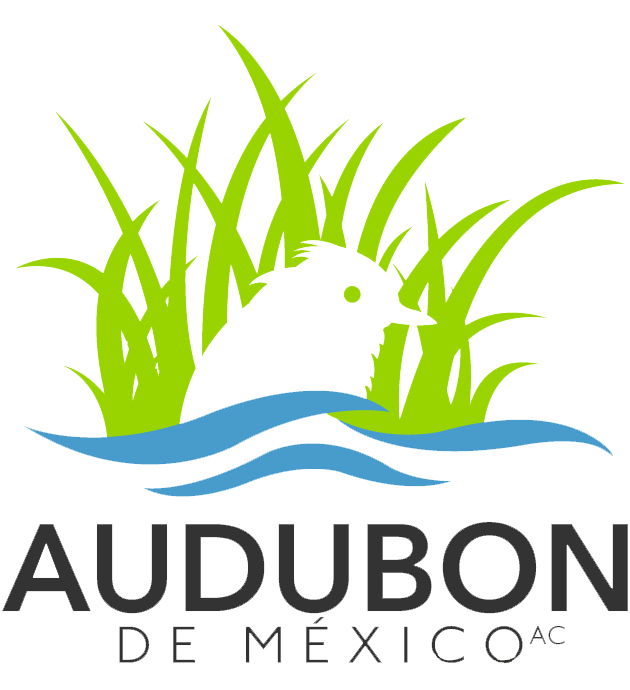A CRISES IN THE PRESA ALLENDE: Lirio Acuatico
Help us turn the Lirio Acuatico into benefical products that help the environment and our local fishing community members!
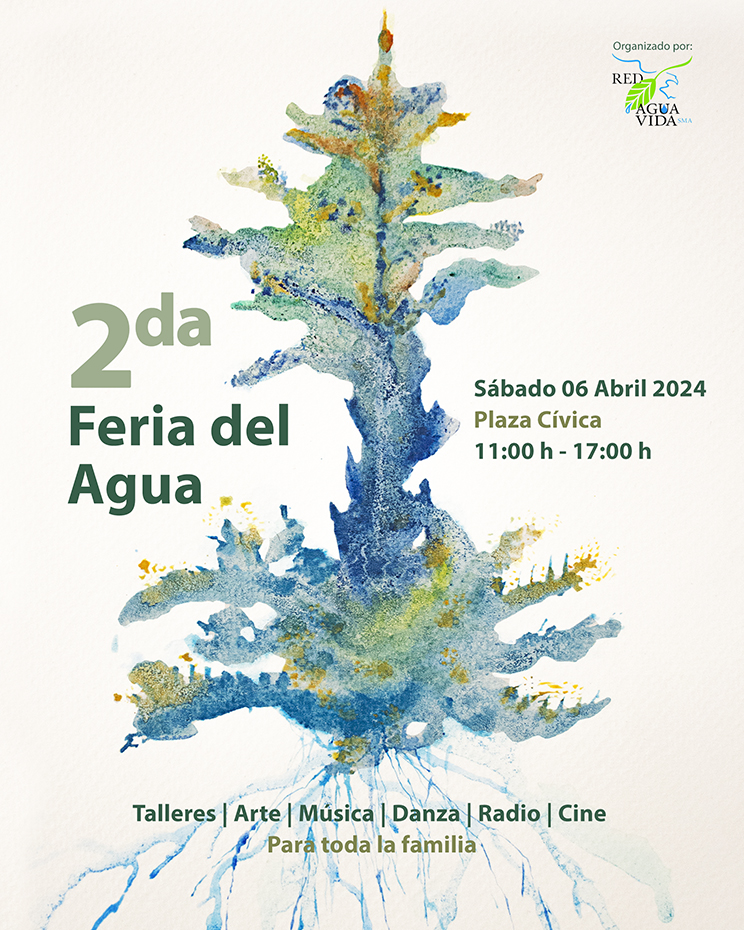
Attend the Water Fair!
Saturday, April 6 Plaza Civica 11 am-5 pm (we will be closing our table at 4 pm)
Rescatemos la Presa Allende will have a table at the Feria. Come to learn about the Lirio Acuatico (water hyacinth) crisis in the Presa Allende, what our group has been doing to help turn the Lirio into productive uses and how you can help. There will be a public presentation on this topic at 12:45 pm.
Rescatemos la Presa Allende tendrá una mesa en la Feria. Ven a aprender sobre la crisis del Lirio Acuático en la Presa Allende, lo que nuestro grupo ha estado haciendo para ayudar a convertir el Lirio en usos productivos y cómo puedes ayudar. Habrá una presentación pública sobre este tema a las 12:45 pm.
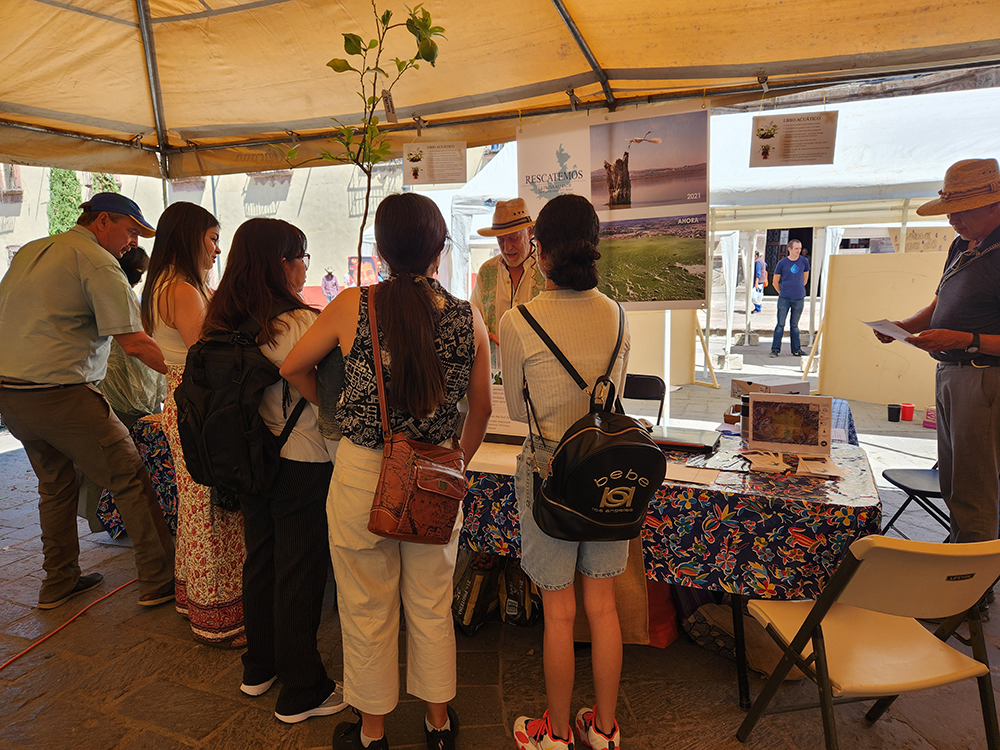
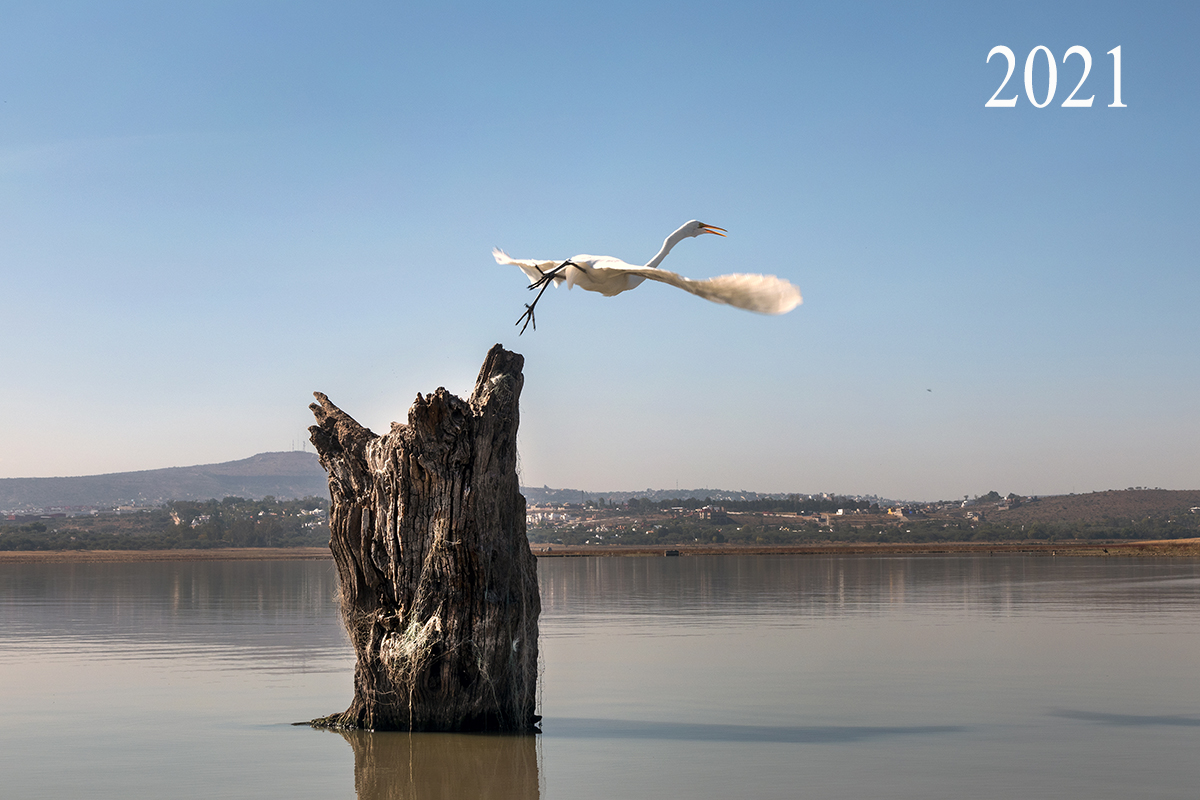
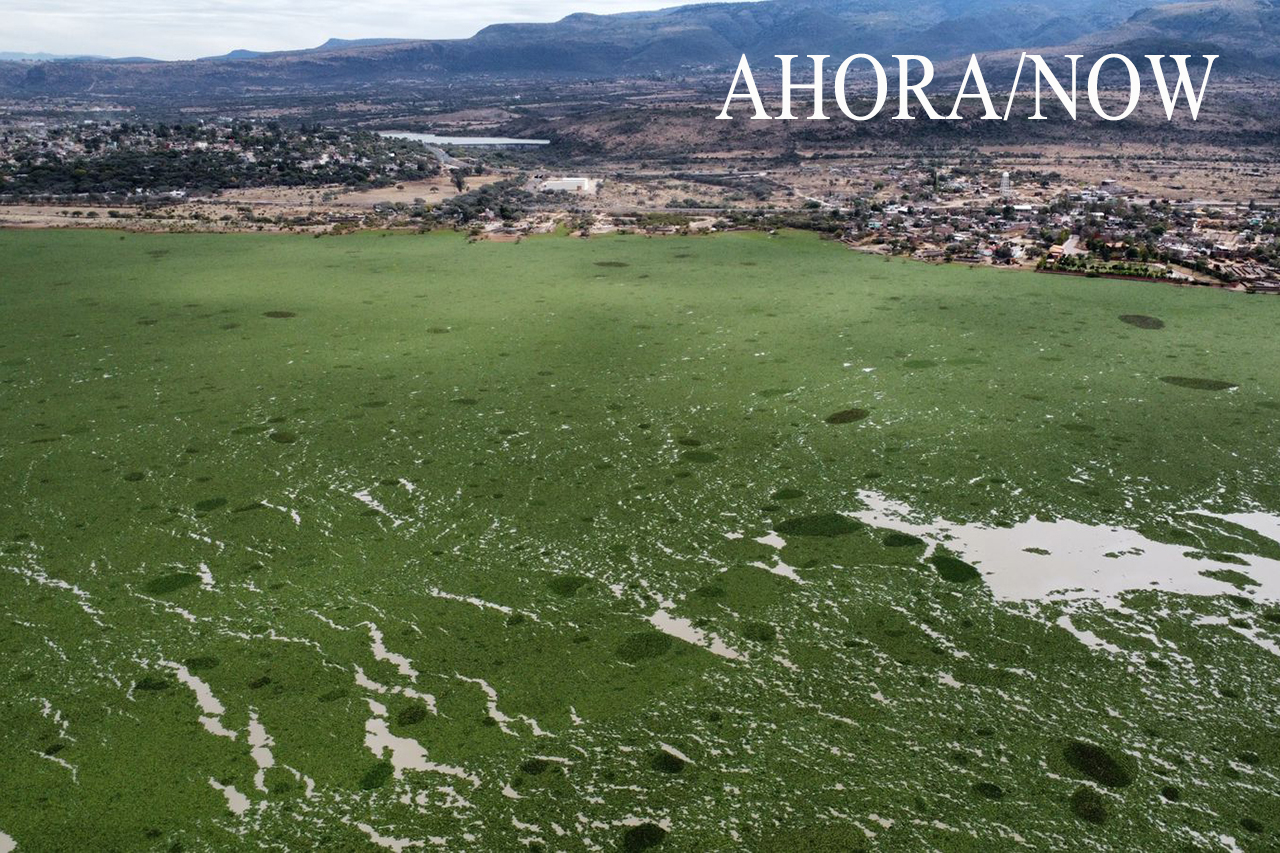
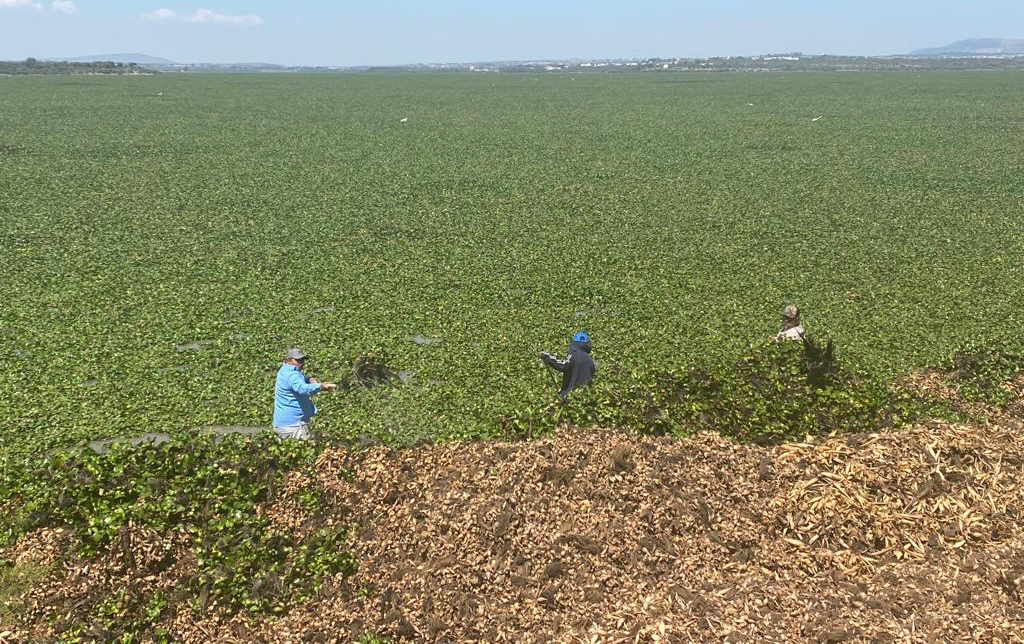
RESCATEMOS LA PRESA ALLENDE
Responding to the urgent need to remove and manage the infestation of Lirio Acuatico (Water Hyacinth) and advocate for substantial improvements in water quality in order to manage the growth of this invasive plant and safeguard the livelihoods of local fishermen and the ecological and recreational values of the Presa Allende and its surroundings.
SIGN UP FOR OUR MAILING LIST
liriopresaallende@gmail.com
FOLLOW US ON FACEBOOK
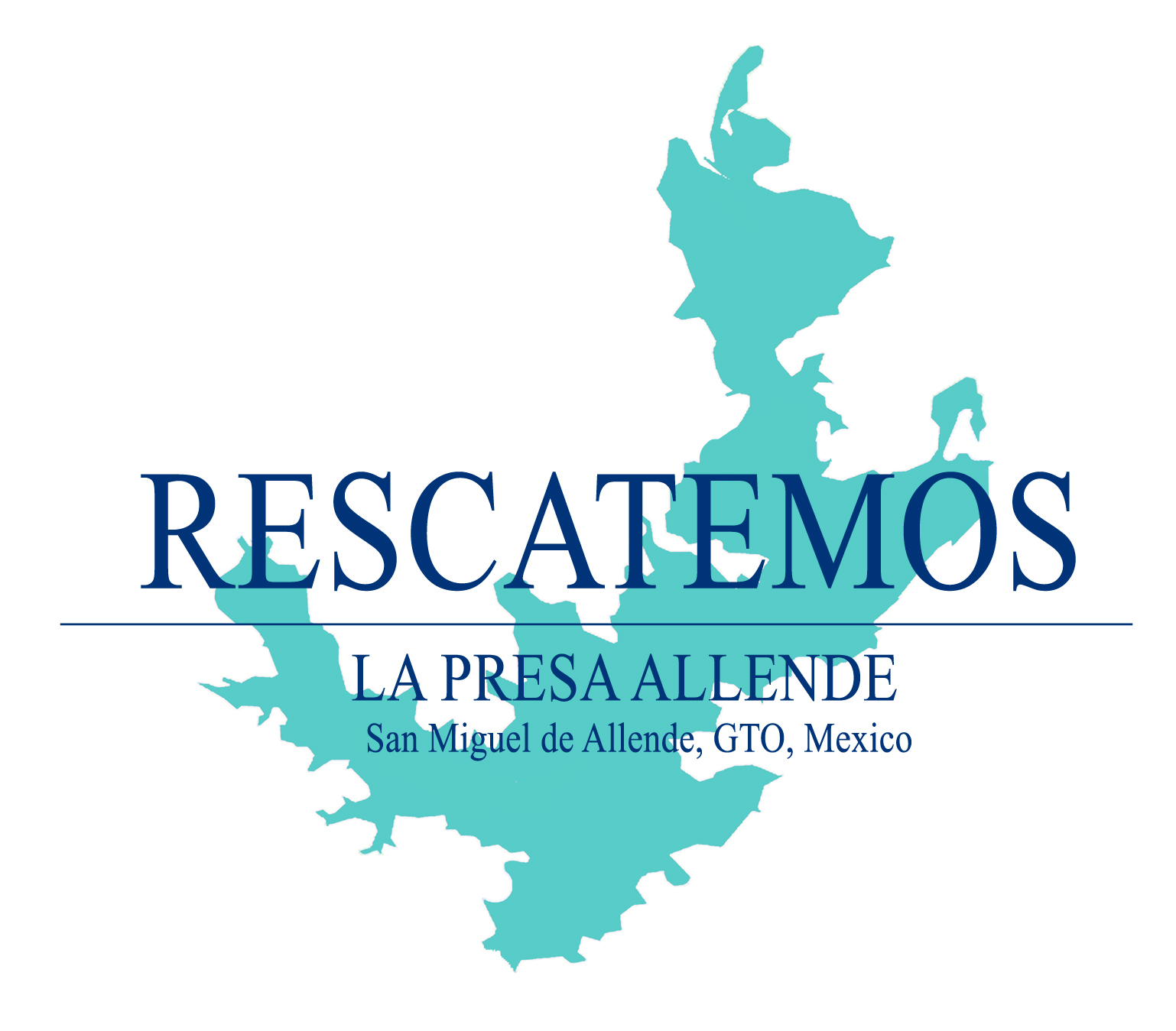
ABOUT US
We are a volunteer group of non-governmental organizations and citizens, that came together under the name of Rescatemos la Presa Allende in January, 2022 to address the Lirio crisis and the long-term health of the Presa Allende.
WHAT WE DO
- Inform and educate the public and engage public participation in addressing this urgent threat;
- Identify and implement solutions for the immediate control of the Lirio and its long-term management, which includes helping the fishing community and other local people establish micro-enterprises that use the plant material to manufacture sustainable products.
- Advocate for improved water quality to control and manage the Lirio growth and to increase the value of the Presa Allende as an ecological and recreational resource and to restore the livelihoods of the fishing community.
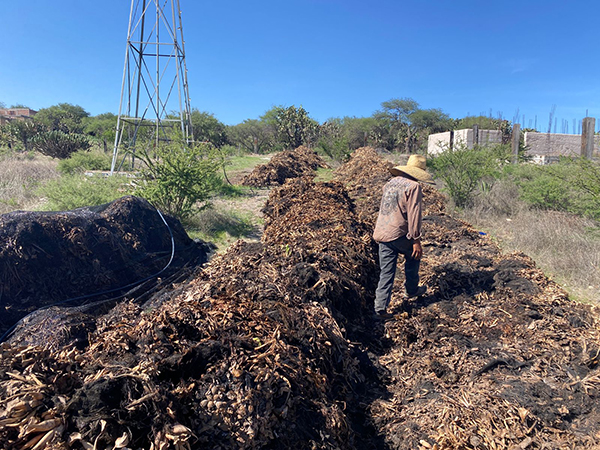
MAKING COMPOST IN FLORES DE BEGONA COMMUNITY, SAN MIGUEL DE ALLENDE
TURNING A CRISIS INTO OPPORTUNITIES
Our future depends upon our ability to turn challenges into opportunities.
LOCAL ENTERPRISES will take investments of time and money to produce products that put the Lirio to productive use, but in the end it will create a sustainable way to control the Water Hyacinth, while providing new sources of income for local families.
We are currently working on four enterprises with members of the fishing community of Flores de Begona:
- Compost
- Mulch
- Raw material for brick making
- Raw material for selling to a manufacturer of industrial absorbents.
WHO BENEFITS FROM THE LIRIO ENTERPRISES?
Local fishermen and their families, whose livelihoods have been destroyed by the Lirio infestation, will generate incomes from the Lirio enterprises.
Agricultural and grazing lands: Compost has the power to regenerate our soils after decades of fertilizer dependency and over-grazing have destroyed their productivity. It will also help the soil retain water. Mulch made from Lirio will help to retain water in the soil and prevent soil erosion from wind and rain.
Gardens and reforestation projects: The benefits of compost and mulch can be applied to home gardens and large and small scale reforestation projects.
Our community will benefit from finding productive uses for the Lirio. Our goal is to control the growth of the Lirio and manage it so that it continues providing incomes and water conservation and soil improvement benefits to our community.
DONATE TO THE ENTERPRISE CAMPAIGN!
We are on the verge of launching our four Lirio enterprise projects, that will provide incomes for locals and create beneficial uses for the Lirio. Currently we are going through a stage of validating our processes for efficiency, safety and quality assurance.
Thanks to the generous support from our community, we have raised the funds to purchase a custom-built blade grinder for chopping fresh Lirio for compost and mulch and a hammermill grinder to turn dried Lirio into a raw material to sell to brickmakers and manufacturers of industrial absorbent pads that are used for cleaning oil and chemical spills.
The grinding machines arrived in Flores de Begona the week of October 23. Our initial trials have begun with the blade grinder, while the hammermill grinder was being fitted for a gas tank. This machine will be put into operation as soon as the Lirio drys out from the recent rainfall.
The more we do, the more we learn. Due to low water levels, we must travel further to harvest the Lirio and then move it further up on the shoreline to dry it. We are currently raising funds for a truck and trailer to move the Lirio. Our goal is self-sufficiency, but we need help from our community to get there!
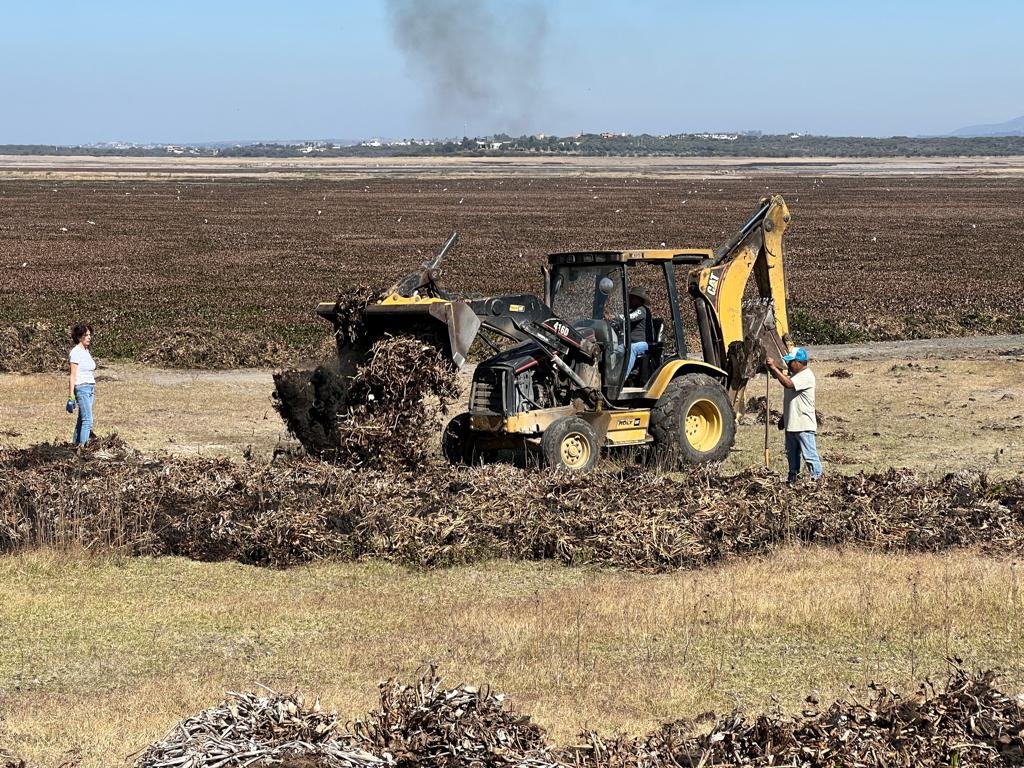
If you wish to make a donation with cash or check, or for a Mexico tax deduction receipt, or U.S. tax deduction for a gift of over 250.00 USD, please contact us at liriopresaallende@gmail.com.
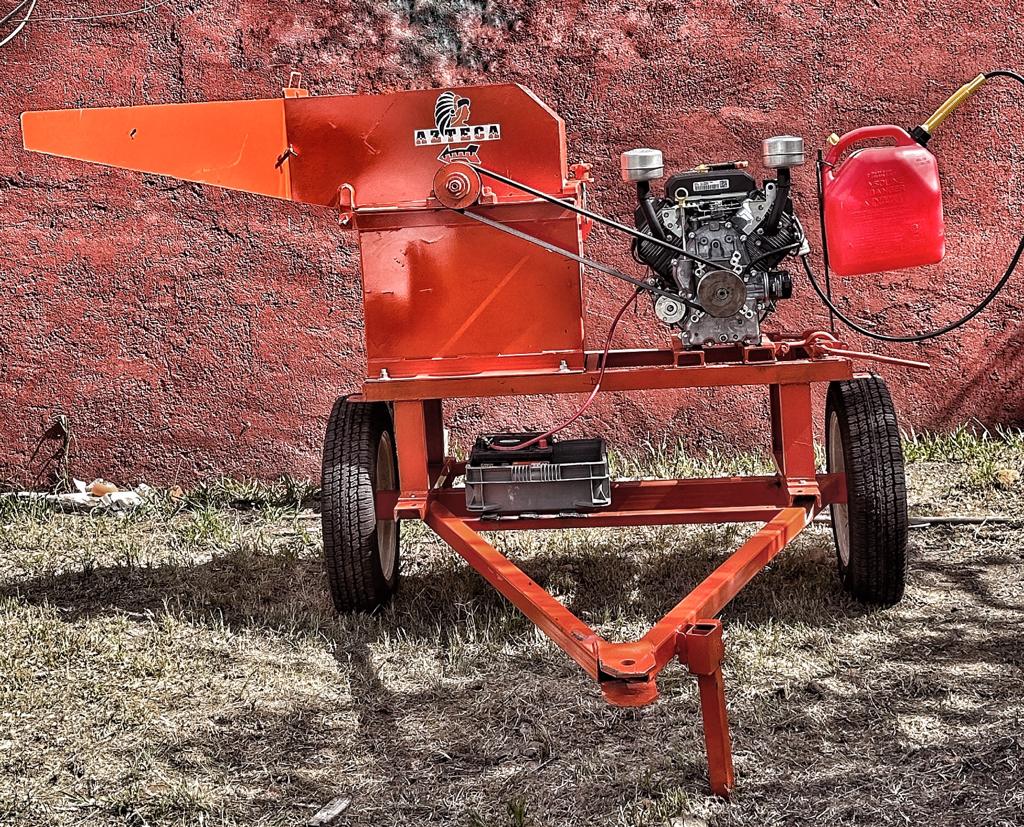
Azteca hammer-mill grinding machine will be used to grind dry lirio for mulch and as a raw material for brick making and industrial absorbents. Below our first test with grinding and bagging finished compost.
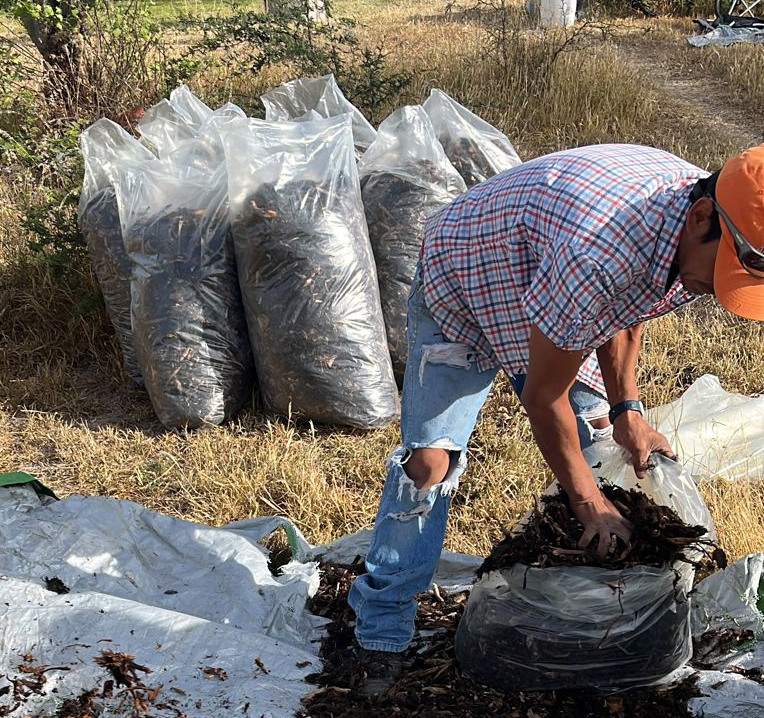
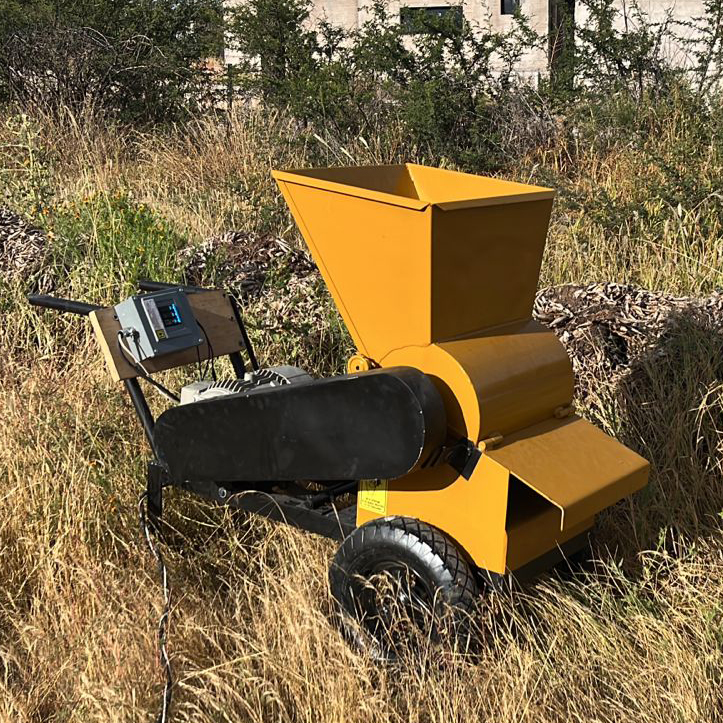
The blade grinder was custom-built to chop fresh Lirio as a part of the pre-composting process.

LEARN MORE ABOUT THE LIRIO ACUATICO
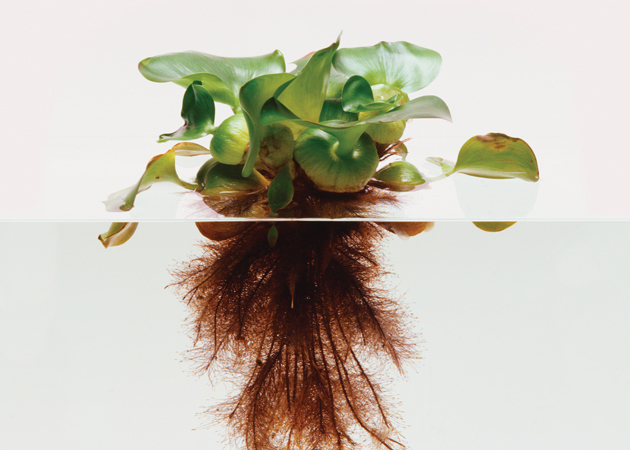
ABOUT LIRIO ACUÁTICO (WATER HYACINTH)
Lirio is a free-floating plant that grows in still or slow moving fresh water bodies.
It feeds upon pollutants in the water, primarily untreated wastewater, manure and fertilizer runoff from agricultural lands.
The plants have dark green, slightly cupped leaves, which catch the wind and allow it to move rapidly across the water and establish new colonies. Beneath the water, their dangling roots become intertwined, causing large mats to form.
It initially reproduces by seed, but once established it reproduces by developing daughter plants, which break off from the mother plant and create new colonies.
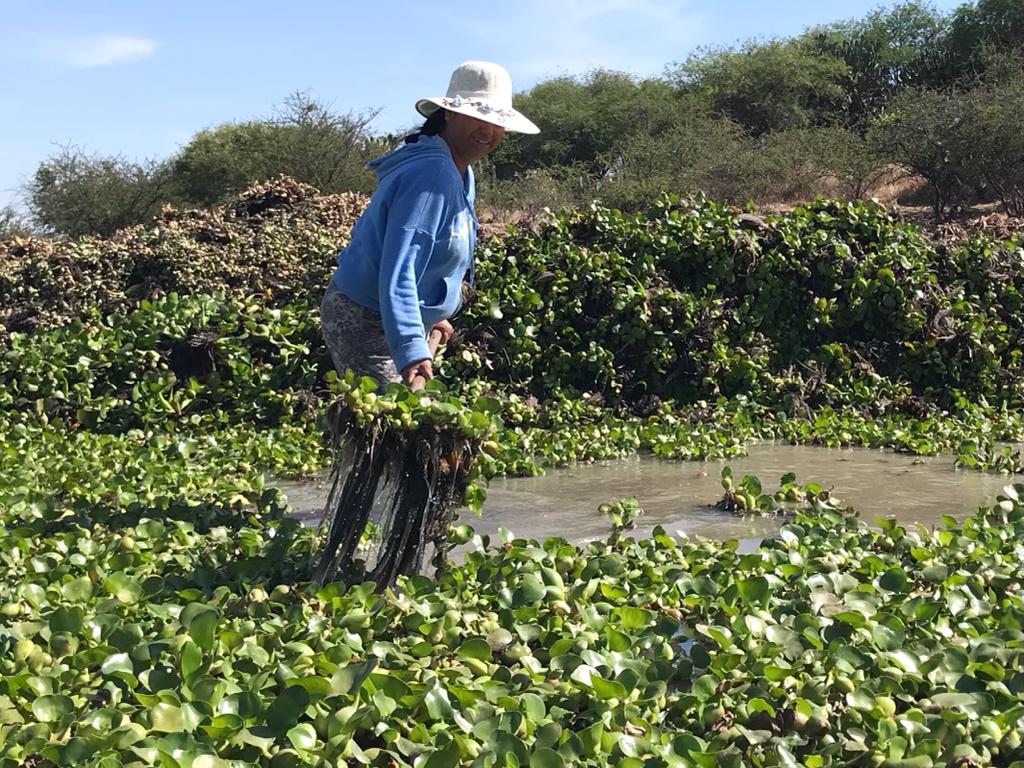
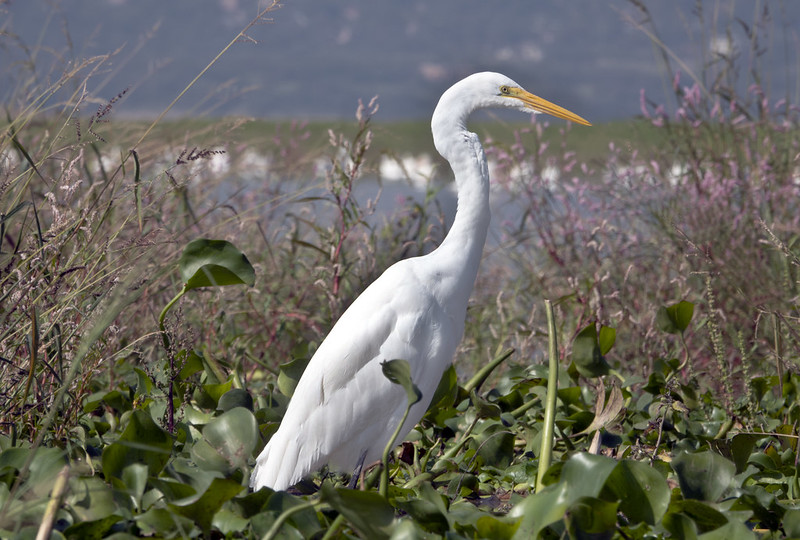
WHAT IS THE THREAT?
Lirio Acuático is native to South American, and has been introduced around the world by people who are drawn to its attractive purple flower and its use as a natural water filter in decorative ponds. It reproduces at a rapid rate and, once established it is difficult to control, which is why it has been labeled one of the world’s most noxious aquatic weeds, and is often referred to as the plant from hell.
Rapid rate of reproduction:
- Able to double in mass every 5-15 days
- It is difficult to remove:
- The plants are 95% water, and its roots are entangled under the water’s surface creating large, heavy mats;
- A mat of medium sized plants may contain 2 million plants per hectare that weigh 270 to 400 tons.
- The wind causes the plants to move rapidly and unpredictably across the water.
Economic, ecological and social harm
- Negatively impacts the livelihoods of local fishermen;
- Creates conditions where invertebrates and fish cannot survive, consequentlyy threatening the food supply for aquatic birds and other animals;
- Endangers human health by creating a prime breeding ground for mosquitos;
- Reduces the water level through transpiration (water loss through leaves) that is 3 times greater than natural evaporation;
- Obstructs recreational boating and enjoyment of the Presa.
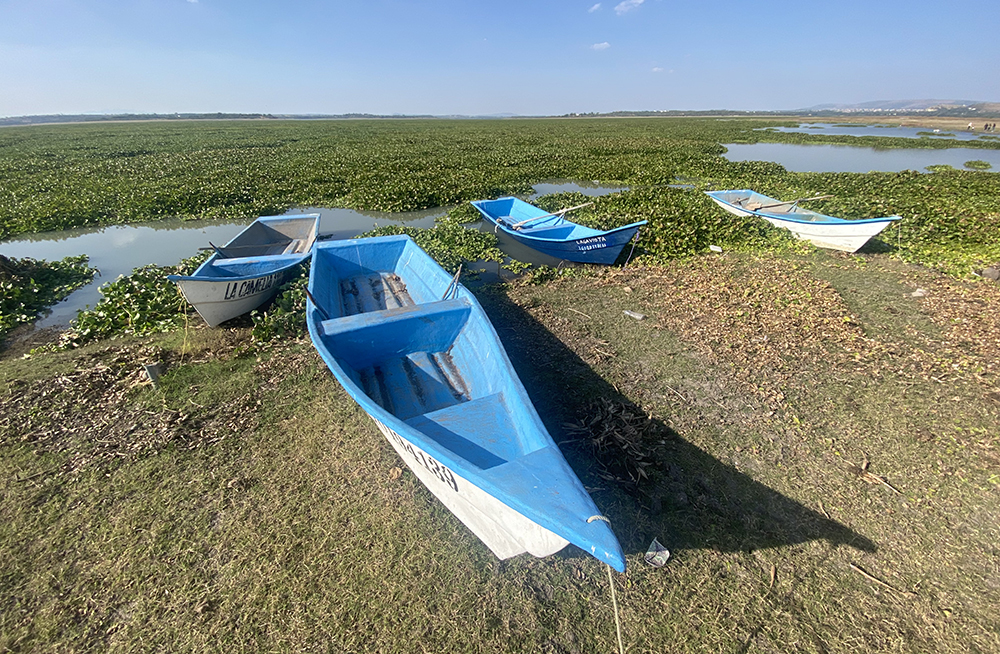
A PERSISTENT PROBLEM
Once Lirio Acuático becomes established it becomes a persistent problem. Small amounts of the plant can rapidly reproduce and Lirio seeds can last in the sediments for up to 25 years.
It will take millions of dollars to contain and remove the Lirio and millions more over time to keep it under control.
THE LONG-TERM SOLUTION
We must take responsibility for controlling the amount of pollutants entering the Presa Allende and its tributaries, which are feeding the Lirio’s growth. These pollutants are primarily untreated wastewater originating from municipal sewage systems and chemical fertilizers from agricultural lands.
PRESA ALLENDE, LIRIO AND CLIMATE CHANGE
As of October, 2023 the Presa Allende is at 14% of its carrying capacity due to drought conditions over the past two years.
Our region is being severely affected by climate change. According to the Director of the State Department of the Environment and Territorial Planning, the temperature in Guanajuato has increased 1.07 degrees celcius on average and up to 1.11 degrees Celsius. While one degree doesn’t sound like much, experts say that it cannot increase beyond 1.5. With extreme hydrometeorological increases, extreme droughts and during the rainy season , fewer, but more intense rainstorms accompanied by flooding is expected.
Precipitation and the level of water in the Presa are directly connected, given that most of the natural springs that once fed the Rio Laja have dried up due to over-extraction of our aquifer. A healthy level of water in the Presa, therefore, depends on rainfall and water collected in smaller reservoirs throughout the river system that overflow during intense storm events.
You can see in the video below that millions of Lirio plants continue to thrive despite low water level conditions because of the (mostly) untreated wastewater that is directed into the Presa, which is not only keeping it afloat, but feeding it. We have seen great quantities of Lirio persisting in the Rio Laja system this past month as well.
Subscribe to our newsletter
Our monthly newsletter will keep you up to date on our scheduled events, our work, and features monthly nature-related articles.
